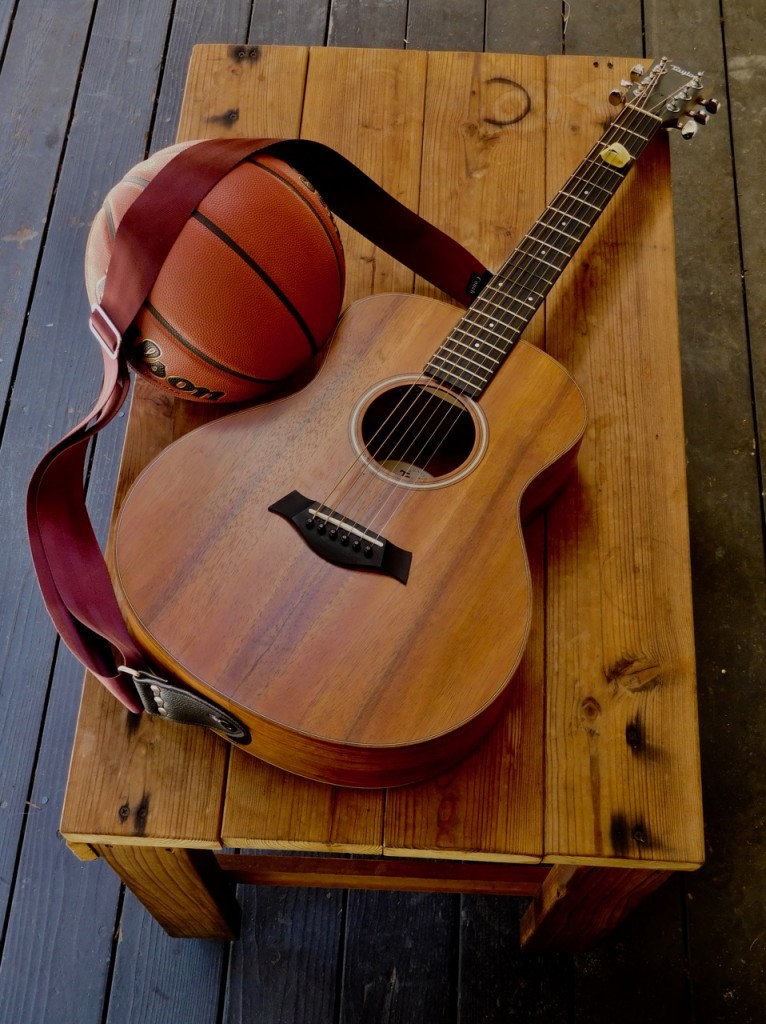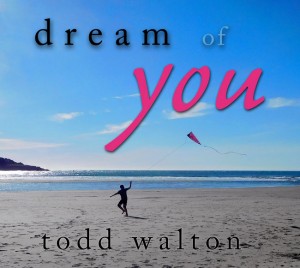
Basketball Guitar photo by Todd
“One does not dream; one is dreamed. We undergo the dream, we are the objects.” Carl Jung
For two consecutive mornings recently I woke from dreams in which I was playing basketball and sinking improbable shots. Having had basketball dreams since I started playing basketball when I was twelve, what I found most interesting about these recent basketball dreams was that I was making shots instead of missing. In most of my previous basketball dreams, the ball would almost go in, but not quite.
In the first of these recent basketball dreams, I am in a professional basketball training facility, standing at mid-court watching pro ball players shooting around at one end of the court. A ball comes to me and I hold it for a moment and think about shooting, but instead of shooting I pass the ball to one of the enormous pros. I then turn away from the pros and go to the other end of the court where a few non-pro players are shooting around. I take a few shots and make them all, and as I continue to shoot, the court starts to change into a store with aisles of shelves. I am in one of those aisles about thirty feet from the hoop when I confidently launch a shot that swishes through cleanly. Feeling marvelous, I look around for a witness and see a boy running by.
“Did you see that shot I just made?” I ask him.
“Yeah,” he says with little enthusiasm. “Awesome.”
The second basketball dream takes place in a vegetable garden connected to a basketball court in a high school gymnasium. I am standing amidst the vegetables with a tall wooden archway looming between me and the faraway hoop. I fling the ball over the arch and watch with delight as the ball falls from on high and passes cleanly through the hoop. I make a second such shot, which prompts the approach of a woman who is concerned I might be interfering in a high school game I shouldn’t be involved in.
Where are Freud and Jung when we need them?
In other subconscious news, having recently taken up the guitar again after a ten-year hiatus, I just wrote my first new guitar song and found the process delightful and mysterious. I call this subconscious news because a large part of songwriting for me has to do with seeding the brain/body/spirit consortium with ideas for melodies and story lines and then seeing what the consortium comes up with over time.
Which is also to say, I think most dreams are the consortium’s attempts to create symbolic movies out of what we’re dealing with in our lives, both in the immediate sense and in the longer arcs of experience that compose our lives. The blueprints for these symbolic creations, I believe, are the ingrained ways we think and feel about ourselves.
I also think some dreams are clairvoyant communications from other people; that we actually co-dream and thereby receive information about each other via the astral plane.
So. After much noodling around, I found the chord and rhythm pattern for my new song, and then for several nights in a row I played the pattern multiple times before going to bed. I woke the following mornings to intriguing images and phrases and memories, gifts of the subconscious, and I would then try fitting those gifts to the chord and rhythm pattern of the song.
The recurring tonalities of those morning gifts were humor, nostalgia, playfulness, joy, and melancholy.
So check this out. A few nights ago I went to bed feeling confident the song, You Say Yes, was done and ready to be sung a hundred times to get it well-learned before I record it. I was smiling as I went to sleep, happy with my new tune, and the next morning I woke to the song playing in my head and…
The lyrics were in Present Tense.
I’d written those lines and worked them dozens of times in Past Tense.
I jumped out of bed, ran to my office, picked up my guitar, sat down with the lyric sheet, and sang the song in Present Tense, and every previously-not-exactly-right syllabic relationship was magnifique.
Man oh man. Woman oh woman. What a kick.
Another of the songs I’ll be recording along with You Say Yes is a song I wrote in my early twenties when I was crashing in my friend Scott’s squalid apartment in New York City, one of the few songs from long ago I still play, a ballad called Agnes June.
Scott was studying composition at the Manhattan School of Music, and through Scott I met several aspiring composers, one of them Hans, a jocular German fellow lavishly supported by his socialist government to study abroad, his particular interest opera. When Hans learned that I played the guitar and wrote songs, he asked to hear some of them, and after I performed a few tunes for him he asked if I would be interested in writing words for a series of operatic lieder he wanted to compose for a talented soprano he was working with.
“If I use your lyrics,” he said, gesturing expansively, “I will pay you a hundred dollars per song.”
I was flattered, felt entirely over-matched, but was desperate for money and agreed to give it a try. Hans was delighted. We had three meetings at groovy cafés where Hans footed the bill for much-appreciated meals. At one of those meetings, we were joined by Neta, the Swedish soprano. She, too, was being nicely supported by her socialist government to study abroad, and we had a lively discussion about the kinds of lyrics they were hoping I would write for them.
“Sorrow,” said Hans, smiling ecstatically. “Youthful sorrow.”
“But joyful,” said Neta, nodding emphatically. “Joyful sorrow.”
“The poignant juxtaposition of joy and sorrow,” said Hans, tapping the table. “Bitter and sweet, tragic and comic.”
“The moodiness of youth,” said Neta, sighing. “You know how when we were teenagers we could go from ecstasy to misery in a heartbeat? That sort of thing.”
“We want the listener to smile and weep,” said Hans, beckoning the waitress to bring him another beer. “Cry and laugh.”
I spent several days sitting on various park benches working on lyrics for Hans and Neta—Scott’s apartment too depressing—and then presented Hans with the words for seven songs. He said he would get back to me, and a few days later he took me to lunch and said, “I like all your lyrics, love two of these, but Neta was hoping for something more free form. These are intriguing story songs, but not modern. Not contemporary. These are ballads from another time. They ask for beautiful melodies, but atonality and abstraction are in vogue now. I should have been more explicit. I apologize. You obviously worked very hard. I would like to give you a hundred dollars.”
I foolishly turned down the money, stowed the sheets of lyrics in my guitar case, left New York not long after, and carried on with my vagabond life for a while longer before settling into hippie life in Santa Cruz.
When I got a new guitar and a new guitar case, I was transferring stuff from the old case to the new case and came upon the lyrics I’d written for Hans. Most of the songs struck me as trying-too-hard junk, but the one called Agnes June sang to me as I read the words.
All these decades later, I understand Agnes June as a story from my life at that time, disguised as a classic ballad—sorrowful and joyful.
I was married in the snow to a girl named Agnes June.
We loved all through the year, under sun and under moon.
She could sing like an angel, like a birdie, too.
When the sky was gray, Agnes Junes would sing the blues.


